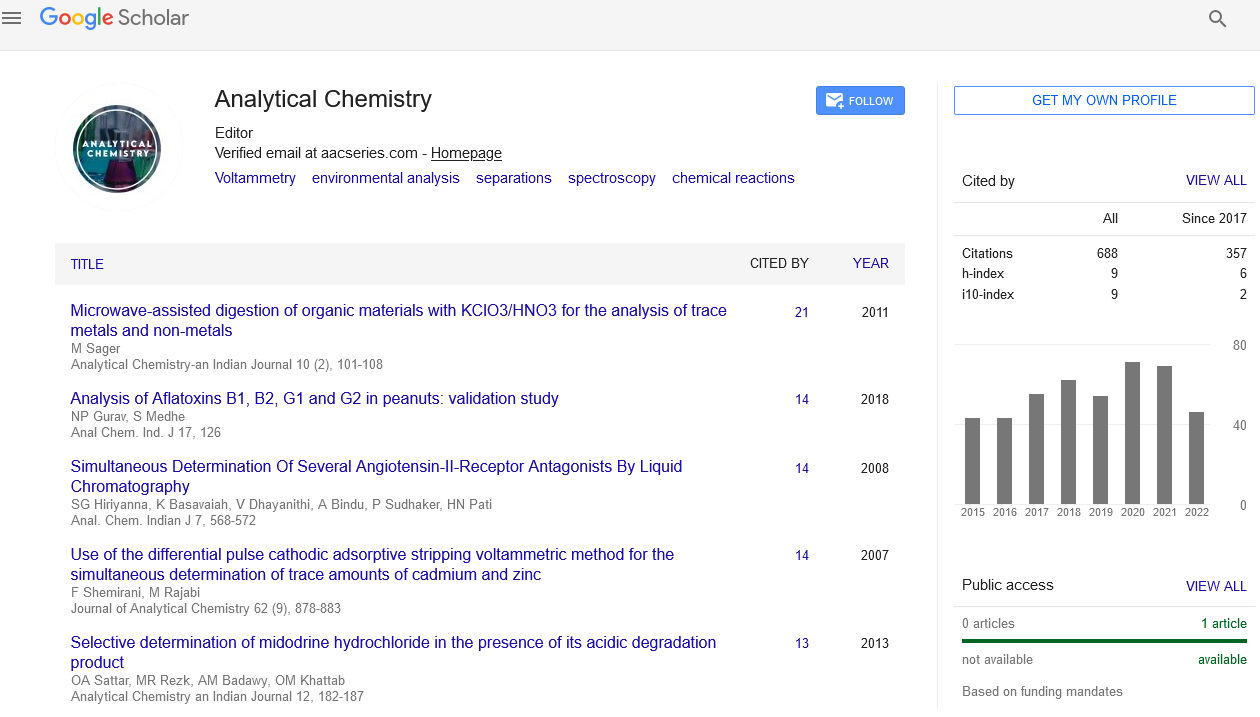Abstract
Determination of Dipyridamole in the presence of its degradation products and in the presence of Aspirin
Author(s): M.F.Abdel-Ghany, L.A.Hussien, M.H.Abdel RahmanA stability-indicating thin-layer chromatographic method (TLC) was developed for the determination of Dipyridamole in presence of its acid, alkaline, oxidative and thermal induced degradates. This TLC method and a double divisor ratio spectra derivative method were developed for determination of Dipyridamole in presence of Aspirin and Salicylic acid, as the combination of Dipyridamole andAspirin is widely used to reduce thrombosis in patients with thrombotic diseases. Dipyridamole was separated by TLC densitometic method from its degradates on silica gel plates using acetonitrile:ammonia 33% (4:1, v/v) as a developing system. This method depends on quantitative densitometric evaluation of thin layer chromatogramof Dipyridamole at 230 nmover a concentration range of 0.30-15.00 ìg/spot with mean percentage recovery 99.87 ± 0.62. The double divisor ratio spectra derivative method (DDRD) depends on the measurement of the amplitude at 252nmusingAspirin and Salicylic acid as double divisor. Calibration graph of (DDRD) method for Dipyridamole is linear in the concentration range 1–10 ìg /ml with mean percentage recovery 99.47 ± 1.41. The proposed methods have been successfully applied for the analysis of Dipyridamole in pharmaceutical dosage formwithout interference fromother dosage form additives and the results were statistically analyzed and compared with those obtained by certain validated published method. Moreover, The TLC-densitometric method was successfully applied for the determination of Dipyridamole in spiked human plasma with mean percentage recovery 101.96± 4.28.

